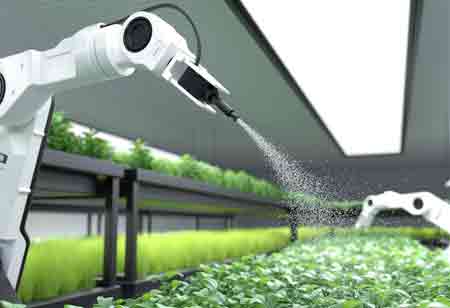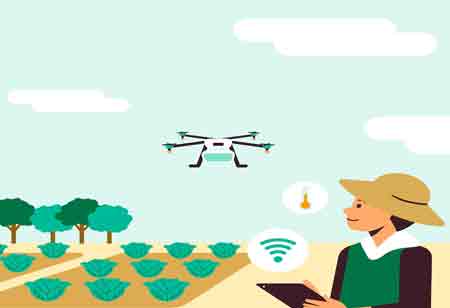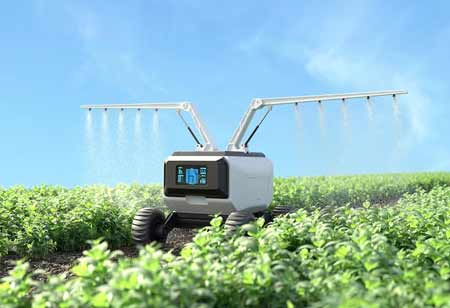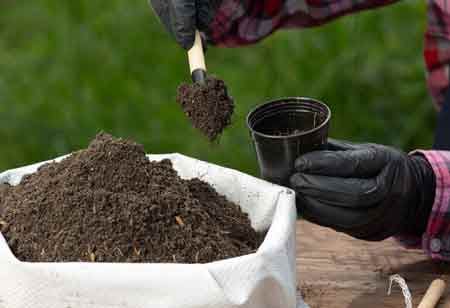Thank you for Subscribing to Agri Business Review Weekly Brief
Exploring the Versatility of Biological Seed Treatments
In pursuing sustainable and eco-friendly agricultural practices, the agricultural community is shifting their focus to innovative solutions.
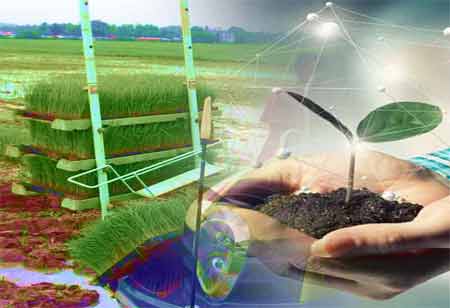
By
Agri Business Review | Wednesday, February 07, 2024
Stay ahead of the industry with exclusive feature stories on the top companies, expert insights and the latest news delivered straight to your inbox. Subscribe today.
Biological seed treatment reshapes agriculture, fostering sustainable practices, bolstering crop resilience, and integrating cutting-edge innovations for effective, eco-friendly crop production.
FREMONT, CA: In pursuing sustainable and eco-friendly agricultural practices, the agricultural community is shifting their focus to innovative solutions. Among these, biological seed treatment has emerged as a promising avenue, transforming the way farmers approach crop protection and productivity.
Comprehending Biological Seed Treatment
Biological seed treatment encompasses the application of advantageous microorganisms, like bacteria, fungi, and other naturally occurring substances, to seeds before planting. These treatments emphasise improving seed germination, safeguard against pathogens, and boost overall plant health. Unlike conventional chemical seed treatments, biological alternatives utilise the power of nature to foster sustainable and environmentally friendly agriculture.
Enhancing Germination and Early Growth
Biological seed treatments stand pivotal in improving seed germination and early seedling growth. The beneficial microorganisms create a protective shield around the seed, creating a conducive germination environment. This translates into more uniform plant stands, setting the stage for higher yields and better crop quality.
Natural Protection Against Pathogens
One of the primary benefits of biological seed treatment is its capability to deliver natural protection against pathogens. Beneficial microorganisms, encompassing mycorrhizal fungi and certain bacteria, establish symbiotic relationships with the plant roots. This symbiosis acts as a barrier, mitigating harmful pathogens and minimising the dependence on chemical pesticides. The result is healthier crops and reduced environmental impact associated with conventional pest control methods.
Promoting Soil Health
Biological seed treatments aid in the overall health of the soil. As the treated seeds germinate and grow, they interact with the soil microbiome, promoting a harmonious and diverse ecosystem. This microbial diversity improves soil structure, nutrient cycling, and water retention, building a more resilient and sustainable foundation for agriculture.
Environmental Sustainability
Unlike chemical seed treatments, which can pose lingering environmental risks, biological seed treatments align with sustainable agricultural principles. Harnessing natural environmental processes, these treatments stand paramount in minimising the ecological footprint associated with conventional farming practices.
Reducing the dependence on chemical inputs leads to lower pollution levels in water bodies and soil, safeguarding ecosystems and preserving biodiversity. This paradigm shift towards eco-friendly solutions fosters sustainable farming and underscores dedication to safeguarding the delicate balance of the environment, guaranteeing a more harmonious coexistence between agriculture and the ecosystem.
Adaptability to Various Crops
Biological seed treatments are versatile and adaptable to various crops, making them a valuable tool for farmers cultivating diverse agricultural products. For instance, the application of biological seed treatments can be tailored to specific crops, providing a comprehensive approach to sustainable farming practices.
Long-Term Impact on Crop Health
The advantage of biological seed treatments transcends the initial stages of plant growth. Establishing symbiotic relationships between the plant and beneficial microorganisms has long-term positive effects on crop health. This resilience against diseases and pests translates into minimised crop losses, ultimately contributing to food security.
Economic Viability for Farmers
Apart from environmental considerations, biological seed treatments are also economically viable for farmers. While initial costs may be comparable to chemical alternatives, the long-term benefits, encompassing better yields, lower input costs, and enhanced soil health, contribute to a more sustainable and economically sound agricultural model.
Beyond the Basics
Beyond its foundational roles in disease and pest control, biological seed treatment emerges as a versatile force, influencing fundamental aspects of plant development and resilience. Particular microbial strains within biological seed treatments can break dormancy in seeds, promoting faster and more uniform germination. This transformative process facilitates earlier harvests and elevated crop productivity, resonating with sustainable and efficient agriculture aspirations.
Furthermore, Leveraging the capabilities of certain bacteria and fungi, biological seed treatments empower plants to better cope with environmental stresses, like drought or temperature fluctuations. This stress resilience safeguard yields and fortifies crops against adverse conditions, providing a sustainable solution to bolster agricultural productivity.
The Latest Innovations
Nanotechnologies demonstrate a cutting-edge frontier in elevating the efficacy of biological seed treatments. Researchers are focusing on nanoparticles coated with beneficial microbes, envisioning a microscopic delivery system that heightens their impact on plant health.
The use of nanotechnology holds the promise of safeguarding these microorganisms from environmental stressors, guaranteeing more targeted and effective application to seeds. This transformative approach heightens the effectiveness of biological seed treatments to unparalleled levels, delivering a glimpse into the future of sustainable agriculture.
The advent of precision agriculture characterises a paradigm shift in the application of biological seed treatments. The concept revolves around tailoring these treatments to different soil types, crop varieties, and environmental conditions. Integrating precision agriculture facilitates farmers to streamline the outcomes of biological seed treatments on an individualised basis, meeting the unique requirements of their farms. This customised approach heightens the adaptability and efficacy of biological seed treatments, enabling them to address the diverse challenges faced by different agricultural settings.
Genomic sequencing is another important area of focus in biological seed treatments. Unlocking complexities of microbial communities within the soil and on the seed surface empowers scientists to gain relevant insights into the composition and functionality of these microorganisms. This comprehensive understanding facilitates the development of more targeted and effective biological treatments, guaranteeing a harmonious interaction between the seeds, soil, and the introduced beneficial microbes. Genomic sequencing fuels a future where biological seed treatments are fine-tuned with accuracy, streamlining their influence on crop health and overall agricultural sustainability. As developments in this sector progress, the sector of biological seed treatment is undergoing continual transformation, promising a future where agriculture effortlessly integrates state-of-the-art technologies to bolster sustainable and efficient crop production.

